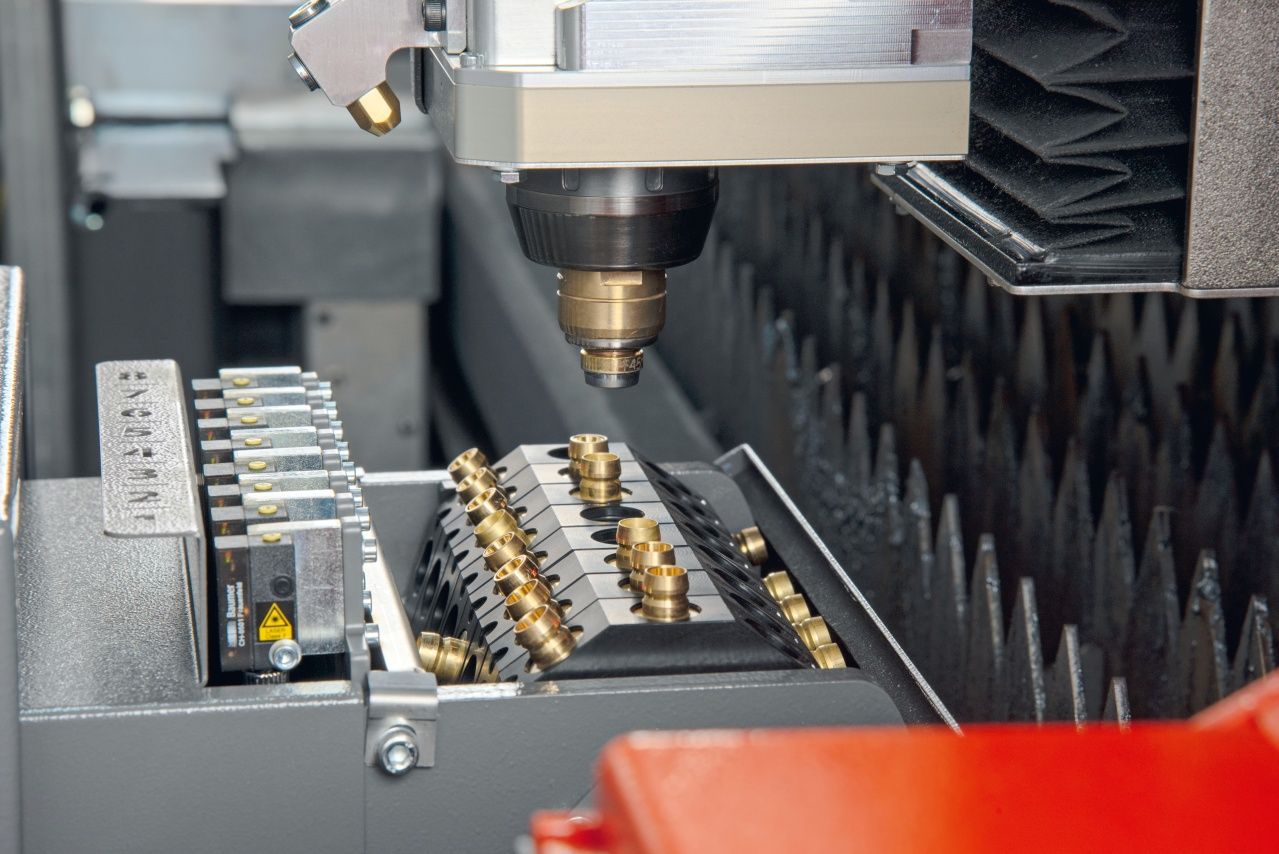
Blog Automating Laser Cutting Machine Operation
Fiber laser technology in particular has been the most disruptive technology to laser cutting in general, and a key driver for producing much-needed technology for automating laser cutting machine operations. This is due to the high productivity achieved with fiber laser cutting machines. In particular, machine setup and monitoring tasks have evolved significantly due to the high demand for fully automated laser cutting systems that can operate in off-shifts and over weekends.
Manual Adjustments of Laser Cutting Machines
In the past, laser operators would be required to make a number of manual adjustments to the laser cutting machine before each material was cut. Included would be adapting the appropriate cutting parameters, setting the proper focal lengths, focal positions, selecting the correct nozzle types, and centering of the nozzle. While the machine was running, the machine operator would be required to monitor cut conditions, as an incidental bump to the nozzle from making contact with an adjacent cut part could have an effect on nozzle centering. If not identified and addressed quickly, cut quality would be negatively affected. This would pose a significant risk in the case of running the laser cutting system during an off-shift or over a weekend shift.
Machine Automation Technologies
New machine automation technologies have addressed the need for operating laser cutting systems fully automatic and without the risk that existed in the past. Today, fixed cutting heads are adapted with variable telescopic magnification which automatically adjusts the focal length and spot size. Today’s fixed cutting heads include automatic focal positions based on the material to be cut, and nozzle changers have the ability to change the nozzle size and type automatically depending on the material to be cut. Automatic nozzle centering and nozzle height calibrations ensure that the nozzle is correctly adjusted to provide consistent high-quality cutting results.
In the case of where a nozzle makes contact with an adjacent part, the laser cutting system will automatically proceed with a nozzle centering routine to ensure that the nozzle centering is correct. During the cutting process, the optical cut monitoring system is constantly monitoring the cut channel (kerf) for irregularities in visible light emitting from the cut zone. In the case of where an irregularity is detected, the system will retrace to just prior to where the irregularity occurred and cut again through the existing channel to ensure the proper cut has been re-established. The laser cutting system will then perform a nozzle centering and calibration routine. Automation technologies for monitoring nozzle centering and nozzle calibrations as well as cut kerf monitoring greatly enhance a machine’s ability to run in off-shifts and weekend shifts without the inherent risks associated with unattended operations.
Fully Automated Laser Cutting Systems
Laser cutting machine setups and operations have indeed evolved with demands from fully automated material handling system requirements to operating with little to no supervision. As programs are released to these automated systems, the materials are presented to the laser cutting machine by automated material handling and storage systems, the laser cutting machine itself accomplishes all of the automated setups for focal length and spot size, nozzle selection, nozzle centering, and calibration. The automatic unloading of the cut sheets is accomplished with the automated material handling system, and if also equipped with part sorting, automatic unloading and stacking of the parts and sorting by kits or jobs is possible. All of these automated technologies combined make it possible to operate unmanned laser cutting systems in the off-shifts and over weekends, and with consistently high-quality results and high throughput capabilities.